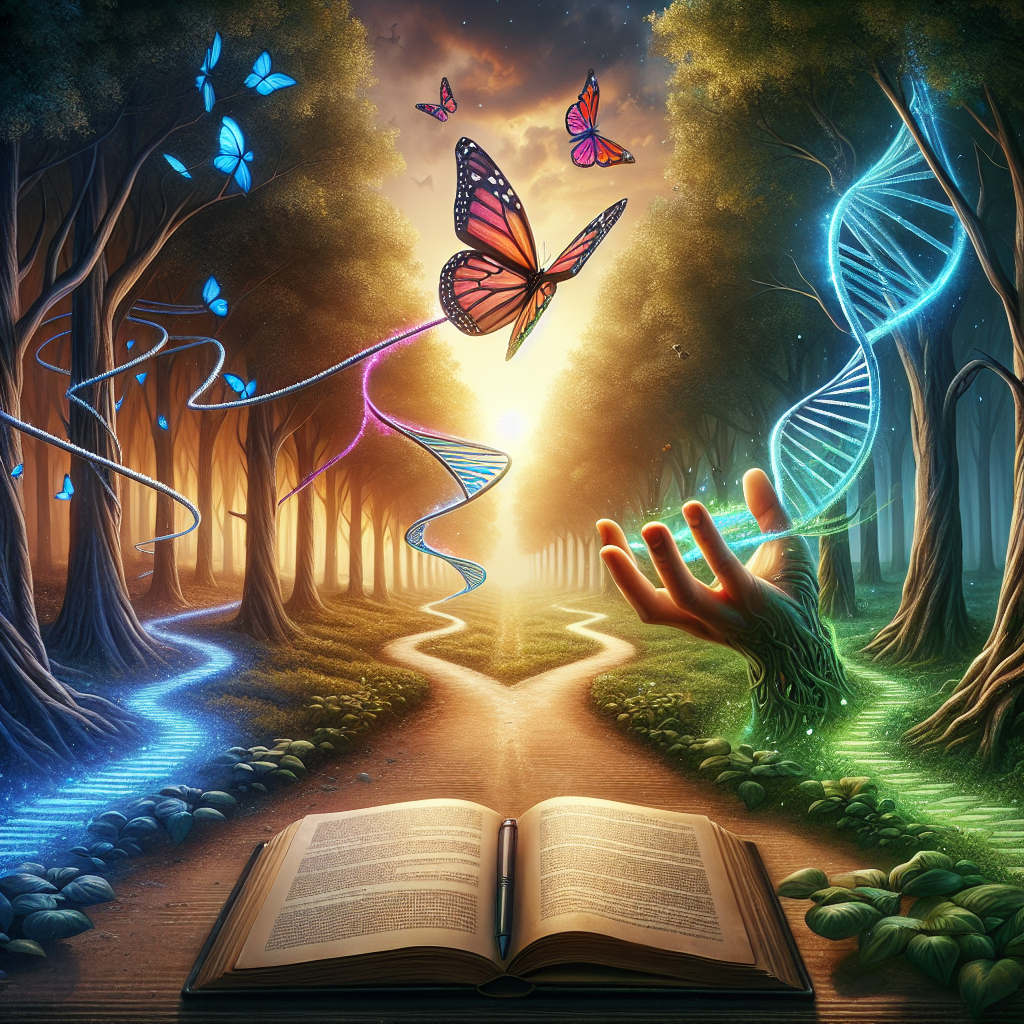In this article, we will explore the concept of fate and its relationship with destiny. We will delve into what fate truly means, questioning whether we have any control over our own fate. With a focus on understanding the meaning of destiny, we will discover alternative words used to describe this powerful force. Examining the impact of destiny, we will contemplate what lies within our individual destinies and how we can choose our own path. With a clear definition of fate, this article aims to shed light on this intriguing subject and help us unravel the mysteries of our predetermined futures.

Fate vs Destiny
Fate and destiny are two concepts that have captivated the minds and hearts of humans for centuries. Both terms evoke a sense of inevitability and purpose in our lives. But what do they really mean? Are they the same thing or are there nuanced differences between them? In this comprehensive article, we will delve into the intricacies of fate and destiny, exploring their definitions, cultural interpretations, and their implications for personal growth and happiness.
Defining Fate
The etymology of fate
To understand the concept of fate, it is essential to trace its origins. The word “fate” is derived from the Latin word “fatum,” meaning “that which has been spoken.” This suggests that fate encompasses a predetermined or predestined course of events. Across various cultures and traditions, the idea of fate resonates as the belief that our lives are guided by forces beyond our control, often associated with an ancient and divine decree.
Various interpretations of fate across cultures
Fate is a concept that transcends cultural boundaries and finds its expression in diverse ways. In Greek mythology, for instance, the three Moirai, also known as the Fates, were responsible for weaving the destiny of each individual’s life. Similarly, Norse mythology speaks of the Norns, who determined the fate of humans. These ancient beliefs reflect a universal human inclination to attribute the course of events to forces greater than ourselves, highlighting the profound role that fate plays in shaping our lives.

Understanding Destiny
Defining destiny
Although often used interchangeably with fate, destiny carries its own unique connotations. Destiny refers to the predetermined events or circumstances that await an individual in the future. Unlike fate, which suggests an external force dictating our lives, destiny emphasizes a personal journey or purpose that unfolds over time. It is inherently tied to the idea that individuals have a unique path to follow, with specific opportunities and challenges awaiting them.
Related terms for destiny
Destiny is a concept that has inspired poets, philosophers, and dreamers throughout history. Sometimes referred to as “fate’s cousin,” destiny is also associated with terms such as fortune, providence, and kismet. These words encapsulate the idea that our lives are imbued with profound meaning and that there is a greater plan or design guiding our individual experiences.
Controlling Fate
Can we control our fate?
The question of whether we have control over our fate has long intrigued humanity. Some argue that fate is predetermined, leaving no room for personal agency, while others believe that we possess the power to influence the course of our lives. In truth, the answer lies somewhere in between. While certain events may be beyond our control, such as natural disasters or unforeseen circumstances, we do have the ability to shape our responses and reactions to these events. Ultimately, it is our choices and actions that shape the trajectory of our lives, even within the context of fate.
The role of free will in shaping fate
Free will, the ability to make choices independent of external influences, is often seen as the counterbalance to fate. It provides individuals with the agency to make decisions that can alter the course of their lives. Free will is the catalyst that can transform fate from a rigid script into a dynamic journey. By exercising our free will, we can seize opportunities, overcome obstacles, and forge our own paths, thereby influencing our personal fate.

The Power of Destiny
Beliefs in predestined outcomes
Throughout history, various cultures and religious traditions have embraced the belief in predestined outcomes. These beliefs emphasize the idea that certain events are fated to occur, regardless of our actions or choices. For instance, in Islam, the concept of qadr suggests that everything is predetermined by Allah. Similarly, in Hinduism, the concept of karma implies that one’s actions in past lives shape their destiny in the current life. These beliefs in predestined outcomes reflect a profound trust in the inherent wisdom and guidance of a higher power.
Examples of individuals embracing their destiny
Numerous examples exist of individuals who have embraced their destiny and fulfilled their purpose in life. Visionary leaders like Mahatma Gandhi, who played an instrumental role in India’s independence movement, and scientists like Marie Curie, whose groundbreaking discoveries transformed the field of science, exemplify individuals who aligned their actions with their destined path. These luminaries found fulfillment and purpose by accepting and embracing the unique destiny that awaited them.
Factors Influencing Fate
Astrology and fate
Astrology, the study of celestial bodies and their influence on human lives, has long fascinated humanity. Many believe that the positions of the stars and planets during the time of our birth can determine our fate. Astrologers interpret these positions and aspects to provide insights into an individual’s personality traits, strengths, weaknesses, and even potential life events. While skeptics may dismiss astrology as mere pseudoscience, for others, it serves as a tool for understanding and navigating the complexities of fate.
Religious and spiritual perspectives
Religious and spiritual beliefs often shape individuals’ understanding of fate. Some view fate as a divine plan orchestrated by a higher power, while others interpret it as the result of the interplay between human actions and cosmic energies. For instance, Buddhism emphasizes the concept of dependent origination, wherein an individual’s fate is influenced by their past actions and intentions. These diverse perspectives offer solace, guidance, and a sense of purpose in navigating the complexities of life.
Locus of control in determining fate
One’s locus of control, the belief in whether events in life are within their control or determined by external forces, significantly influences how individuals perceive fate. Those with an external locus of control tend to believe that they have little agency over their destiny and are at the mercy of external circumstances. In contrast, individuals with an internal locus of control believe in their ability to shape their own fate through their choices and actions. Developing a healthy balance between the two can lead to a more empowered and resilient outlook on life.

Unveiling What Lies in Our Destiny
Seeking insight into one’s destiny
Throughout history, individuals have sought various means to gain insight into their destiny. From ancient oracles to modern-day psychics, divination practices have offered glimpses into the future. Humans have turned to tarot cards, palmistry, astrology, and other divination tools to gain a deeper understanding of their unique path. While the accuracy of these practices may be debatable, they can provide individuals with a sense of clarity, guidance, and self-reflection.
Tools and methods used for divination
Divination encompasses a broad range of practices that attempt to unveil the mysteries of fate. Tarot cards, with their intricate imagery and symbolism, are frequently used to gain insights into one’s past, present, and future. Palmistry, reading the lines on one’s hand, is another popular method to gain insights about an individual’s character and potential fate. Astrology, as discussed earlier, provides a holistic understanding of an individual’s personality traits and life events based on the positions of celestial bodies at the time of birth. These tools and methods serve as conduits for individuals seeking to explore the intricacies of their destiny.
Choosing Your Destiny
Can destiny be altered?
While destiny is often seen as fixed and immutable, there is room for individual agency in shaping one’s path. The choices we make, the actions we take, and the attitudes we adopt play a crucial role in influencing our destiny. While external circumstances may present limitations or obstacles, embracing a growth mindset and remaining open to new possibilities can lead to transformative experiences. By actively participating in our journey and making intentional choices aligned with our values and passions, we can chart a course that aligns with our desired destiny.
Guidance for shaping your destiny
Shaping one’s destiny requires introspection, self-discovery, and a deep understanding of one’s values and aspirations. It involves setting clear goals, being open to opportunities, and embracing failure as a stepping stone toward growth. Surrounding oneself with supportive and like-minded individuals can also provide guidance and encouragement along the way. Ultimately, the pursuit of one’s destiny is a lifelong endeavor, intertwining personal growth, self-actualization, and the courage to follow one’s dreams.

Accepting Fate
The concept of fatalism
Fatalism represents the belief that events are predetermined and inevitable, leading to a resignation or acceptance of one’s fate. It suggests that no matter what actions are taken, the outcome will remain the same. While fatalism can foster a sense of helplessness or passivity, it can also offer solace in relinquishing the burdens of control. Embracing fatalism can enable individuals to find peace in accepting the things they cannot change and focus their energy on the aspects within their control.
Finding peace in accepting our fate
Accepting our fate is not synonymous with resignation or defeat. It requires a deep sense of self-awareness and a willingness to embrace life’s uncertainties. By cultivating mindfulness and an acceptance of the present moment, individuals can find solace in the understanding that some aspects of life are beyond their control. Acceptance allows for a shift in focus towards personal growth, gratitude, and the pursuit of inner peace, ultimately leading to a more harmonious relationship with one’s fate.
Reflections on Fate and Destiny
Philosophical musings on fate
Philosophers throughout history have contemplated the nature of fate and its implications for human existence. Stoic philosophers, such as Epictetus and Marcus Aurelius, believed in accepting fate with equanimity, emphasizing the importance of cultivating inner virtues rather than fighting against external circumstances. Existential philosophers like Jean-Paul Sartre, on the other hand, argued for individual autonomy and the freedom to create one’s own meaning and purpose in a seemingly meaningless universe. These philosophical musings underscore the perpetual human quest to make sense of the paradoxical interplay between fate and personal agency.
Implications of fate for personal growth and happiness
The exploration of fate and destiny carries profound implications for personal growth and happiness. By understanding that fate is not an external force beyond our control, but rather a dynamic interplay between predetermined events and personal agency, individuals can embark on a journey of self-discovery and purpose. Recognizing that our choices and actions influence our fate empowers us to take ownership of our lives and seek opportunities for growth and fulfillment. Embracing our destiny, rather than resigning to our fate, allows for the pursuit of happiness and the realization of our unique potential.
In conclusion, fate and destiny are multifaceted concepts that invite contemplation and interpretation. While fate speaks to the idea of predetermined events and external forces shaping our lives, destiny reflects a personal journey imbued with purpose and meaning. While we may not have total control over our fate, the choices we make and our free will play a pivotal role in shaping our individual destinies. By embracing our fate, seeking insight, and consciously choosing our actions, we can pave the way toward personal growth, fulfillment, and happiness. The interplay between fate and destiny remains an enigmatic and captivating aspect of the human experience, inviting us to reflect on our place in the grand tapestry of life.
